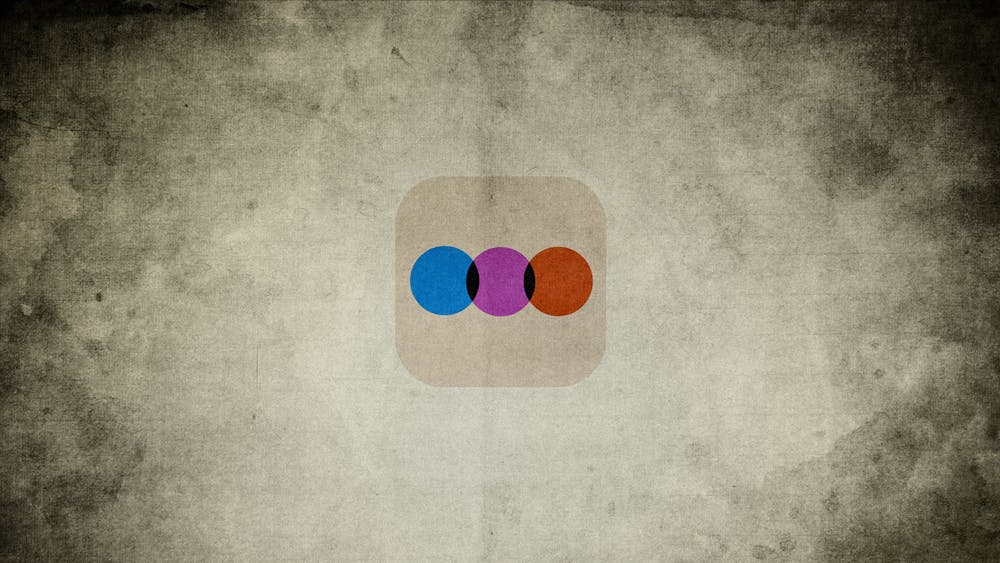Imagine walking out of the movie theater, feeling either renewed or like you just wasted a few hours of your life, and wanting to rave, rant, or complain about it with someone. It’s a pretty common experience. Maybe you’d discuss the film with your friends over dinner; maybe you’d mention it to a classmate in passing.
Critiquing movies has always been integral to the moviegoing experience, but the way it’s done is changing. Instead of sharing your reviews of recently watched films with a couple of family and friends, what if your audience is millions of cinephiles from around the world, all collectively invested in what you have to say?
With the social media platform Letterboxd, that’s exactly the medium users explore. Created by Matthew Buchanan and Karl von Randow in 2011, Letterboxd allows film enthusiasts to anonymously log, review, and discuss movies. Users leave detailed comments in each movie’s threads, connecting films with personal commentary ("this is one of the best things I've ever seen in my piece of shit life” for Everything Everywhere All at Once) and synthesizing their thoughts in quippy, eccentric ways, like this chaotic chronicle of a user’s multiple rewatches of Fight Club.
All the lively discussions on the way home from a Friday night drive–in, the subtle movie references made in random conversation, and the outrage, passion, and delight one feels after watching a meaningful film have become digitally distilled into a little pocket of the Internet.
From its inception over a decade ago, Letterboxd has seen a steady yet consistent growth in its user base, but the platform suddenly experienced a massive expansion during the pandemic. Its audience has quintupled in size over the past three years, with more than 10 million users in 2023 compared to 1.8 million in March 2020. The recent rise in popularity of Letterboxd has been heavily attributed to a widespread shift in media consumption, with home viewing and streaming becoming powerhouses in the entertainment realm. As such, film criticism has transformed into not just a niche vocation amongst a select few, but a hobby enjoyed by much of the general public.
On Sept. 29, valued at more than $50 million, Letterboxd was acquired by Canadian holding company Tiny in a deal. “We see this as a huge win for our community, enabling us to cement Letterboxd’s future with additional resources without sacrificing the DNA of what makes it special,” Buchanan and von Randow said in a statement. But Letterboxd devotees have a different opinion. With the investment firm’s stake in Letterboxd reaching more than 60%, many are worried that the app will overhaul and sacrifice the unique personality of the platform for the sake of market development and monetization, and users will lose their safe haven for conversations about film.
For many Letterboxd–ers, the platform isn’t just a mobile app, it’s a diary. Users headline their profiles with their “Top Four” favorite films and are able to curate hyper–specific lists of movies they’ve seen or hope to see. (See Jake Gyllenhaal movies ranked by his hair, or 2004 movies where Harry wants to kill Peter for killing his father, even though Peter didn’t technically kill him.) Staunch Letterboxd fanatics log, rate, and review every single film they watch, even including rewatches.
Pitched as the “Goodreads of movies,” the platform has shaped an entire pop subculture characterized by informal and oftentimes unhinged film commentary. Its presence has diffused into a myriad of online media, with Letterboxd–affiliated Reddit threads, X (formerly Twitter) accounts dedicated to spotlighting unhinged Letterboxd reviews, and a recurring series on the Letterboxd Instagram page featuring film festival interviews of celebrities on their own top four favorite films. Olivia Rodrigo, Kaia Gerber, and even auteur Paul Thomas Anderson have revealed their use of the app, and Margot Robbie infamously deleted her secret Letterboxd account after fans identified her through finding watchlists dedicated to preparing for her roles in Barbie and Babylon.
Despite the public’s prevailing positivity towards the platform, Letterboxd has also played a role in complex debates within film culture. Most notably, the rising popularity of movie critique has fed flame to the “film bro'' fire, in which film appreciation is gatekept by experienced cinephiles, and purely enjoying mainstream films is oftentimes seen as amateur. On Letterboxd, users may curate their profiles by incessantly logging lesser–known independent films and crafting reviews that support trending film discourse to avoid potential judgment and appear more sophisticated.
In addition, with the inevitable controversies that arise from social networking sites, Letterboxd has also been subject to online trolls and vitriolic opinions on its forums, along with issues with its moderation and community guidelines. In June, Letterboxd was accused of xenophobic bias after it revamped its rating system in order to remove fandom ballot stuffing. The new algorithm allegedly targeted specific movies from the Global South for having inflated scores as a result of foreign bot campaigns, but a vast majority of South Asian films were collectively deprioritized. Users have also voiced complaints about the algorithm for devaluing foreign films mostly seen in their home countries and not the US, where a large portion of Letterboxd’s user base lies. These instances speak to a much larger conversation on the influence of cultural differences and biases on film criticism.
The multifaceted and ever–transforming nature of Letterboxd is a magnifying glass into the intricate nuances behind movies’ influence on popular culture. It really makes us think about the way we analyze, explore, and converse about film in this time of modern moviegoing in the digital age. As film criticism transforms into this dynamic medium of social networking, and as the acquisition of Letterboxd pushes the platform into a new era, let’s hope we rate its sequel as good as the first.







